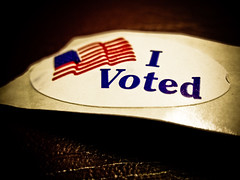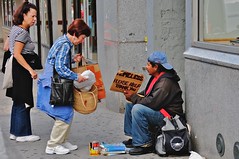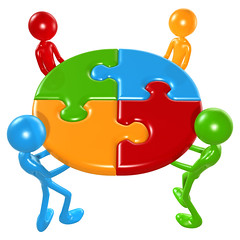AP Psychology - Chapter 18 Flashcards
Terms : Hide Images [1]
| 6691465839 | Social Psychology | The scientific study of how people think about, interact with, influence, and are influenced by the thoughts, feelings, and behaviors of other people. EX: Washing your hands before you eat because its was influenced before dinner everyday. Relevance: The study of Sociology. |  | 0 |
| 6691465840 | Attribution Theory | A theory that supposes that one attempts to understand the behavior of others by attributing feelings, beliefs, and intentions to them. EX: If someone cuts the line during black Friday shopping you automatically assume they are selfish, and rude and it makes you angry. Relevance: The studies of attribution theory were produced by Fritz Heider. |  | 1 |
| 6691465841 | Fundamental Attribution Theory | The tendency to use a dispositional (internal) explanation without considering the situational (external) factors that might be influencing the behavior of someone else. EX: Seeing a homeless person and assuming they are a drunk and that is why they are homeless. Relevance: Jones and Harris (1967) |  | 2 |
| 6691465842 | Foot-In- the door Phenomenon | Tendency for people who have first agreed to a small request to comply later with a larger request EX: Asking your parents for a bike hoping when they say yes to a small request you ask for a larger request such as a car. Relevance: This technique is used most commonly with psychological experiments. |  | 3 |
| 6691465843 | Cognitive Dissonance Theory | the theory that we act to reduce the discomfort (dissonance) we feel when two of our thoughts (cognitions) are inconsistent. Ex: A common college student who regularly drives while intoxicated. When hearing that drinking and driving is dangerous for his or her health and others around them , the student might (1) state that he never drives more than a mile from the local bar, (2) the student may consider how much a taxi is and how much they will is saving by driving himself or (3) Just accept that his behavior is dangerous and stop driving drunk Relevance: Leon Festinger's |  | 4 |
| 6691465844 | Conformity | Adjusting one's behavior or thinking to coincide with a group standard. Ex: Say your friends and you are going to dinner and a movie everyone wants chili's but you want olive garden, you just agree by adjusting your thoughts to the groups thoughts. Relevance: Sheriff's experiment (1936) |  | 5 |
| 6691465845 | Normative Social Influence | Influence resulting from a person's desire to gain approval or avoid disapproval. Ex: Having all name brands like Micheal Kors Relevance: Solomon Asch |  | 6 |
| 6691465846 | Informational Social Influence | Influence resulting from one's willingness to accept others' opinions about reality. Ex: Seek out experts, or look at others behaviors Relevance: |  | 7 |
| 6691465847 | Social Facilitation | Stronger responses on simple or well-learned tasks in the presence of others; the tendency to perform better when a person knows he is being watched. Ex: Someone who plays soccer Relevance: |  | 8 |
| 6691465848 | Social Loafing | The tendency for people in a group to exert less effort when pooling their efforts toward attaining a common goal than when individually accountable. Ex: Group work in school Relevance: |  | 9 |
| 6691465849 | Deindividuation | The loss of self-awareness and self-restraint occurring in group situations that foster arousal and anonymity. Ex: Riots at sports games. Relevance: |  | 10 |
| 6691465850 | Group Polarization | The enhancement of a group's prevailing inclinations through discussion within the group. Ex: Political Debates. Relevance: |  | 11 |
| 6691465851 | groupthink | The mode of thinking that occurs when the desire for harmony in a decision-making group overrides a realistic appraisal of alternatives. Ex: sororities and fraternities. Relevance: |  | 12 |
| 6691465852 | Prejudice | A rigid attitude that is based on group membership and predisposes an individual to feel, think or act in a negative way toward another person or group. Ex: Muslims after 9/11 Relevance: |  | 13 |
| 6691465853 | Stereotype | A generalized (sometimes accurate but often overgeneralized) belief about a group of people. Ex: Policeman like donuts. Relevance: |  | 14 |
| 6691465854 | Discrimination | Behaving differently, usually unfairly, toward the members of a group. Ex: Separate but equal. Relevance: |  | 15 |
| 6691465855 | In-group | A group with which an individual shares identity and feels loyalty towards. Ex: Field Hockey vs Soccer Relevance: |  | 16 |
| 6691465856 | Out-group | A group with which an individual does not identify and may feel competition/hostility towards. Ex: Relevance: |  | 17 |
| 6691465857 | In-group Bias | Tendency to favor individuals within our group over those from outside our group. Ex: Relevance: |  | 18 |
| 6691465858 | Scapegoat Theory | The theory that prejudice offers an outlet for anger by providing someone to blame. Ex: Hitler to the Jews Relevance: |  | 19 |
| 6691465859 | Just- World Phenomenon | The tendency for people to believe the world is just and that people therefore get what they deserve and deserve what they get. Ex: If a woman is raped, is it her fault Relevance: |  | 20 |
| 6691465860 | Aggression | Any physical or verbal behavior intended to hurt or destroy. Ex: Relevance: |  | 21 |
| 6691465861 | Frustration- Aggression Principle | the principle that frustration- the blocking of an attempt to achieve some goal- creates anger which can generate aggression. Example: Luis's computer crashes just as he is about to finish writing a 10-page paper that he hadn't saved along the way. In his frustration at losing all that work, he throws his stapler across the room, breaking his window. Ex: Relevance: |  | 22 |
| 6691465862 | Conflict | A struggle between two opposing forces. Ex: Relevance: |  | 23 |
| 6691465863 | Social Trap | A situation in which the conflicting parties, by each rationally pursuing their self-interest, become caught in mutually destructive behavior. Ex: Watering your lawn during a drought because who else is going to do it, right? Relevance: |  | 24 |
| 6691465864 | Mere Exposure Effect | The phenomenon that repeated exposure to novel stimuli increases liking of them. Ex: Advertisements Relevance: |  | 25 |
| 6691465865 | Passionate Love | An aroused state of intense positive absorption in another, usually present at the beginning of a love relationship. Ex: Relevance: |  | 26 |
| 6691465866 | Companionate love | The deep affectionate attachment we feel for those with whom our lives are intertwined. Ex: Relevance: |  | 27 |
| 6691465867 | equity | A condition in which people receive from a relationship in proportion to what they give to it. Ex: Relevance: |  | 28 |
| 6691465868 | Self-disclosure | Revealing intimate aspects of oneself to others. Ex: Relevance: |  | 29 |
| 6691465869 | Altruism | Unselfish regard for the welfare of others. Ex: Relevance: |  | 30 |
| 6691465870 | Bystander effect | The tendency for any given bystander to be less likely to give aid if other bystanders are present. Ex: Relevance: |  | 31 |
| 6691465871 | Social exchange theory | The theory that our social behavior is an exchange process, the aim of which is to maximize benefits and minimize costs. Ex: Relevance: |  | 32 |
| 6691465872 | reciprocity norm | An expectation that people will help, not hurt, those who have helped them. Ex: Relevance: |  | 33 |
| 6691465873 | Social-responsibility Norm | An expectation that people will help those dependent upon them. Ex: Relevance: |  | 34 |
| 6691465874 | Superordinate Goals | Shared goals that override differences among people and require their cooperation. Ex: Relevance: |  | 35 |
| 6691465875 | GRIT | Graduated and Reciprocated Initiatives in Tension-Reduction - a strategy designed to decrease international tensions. Ex: Relevance: |  | 36 |
